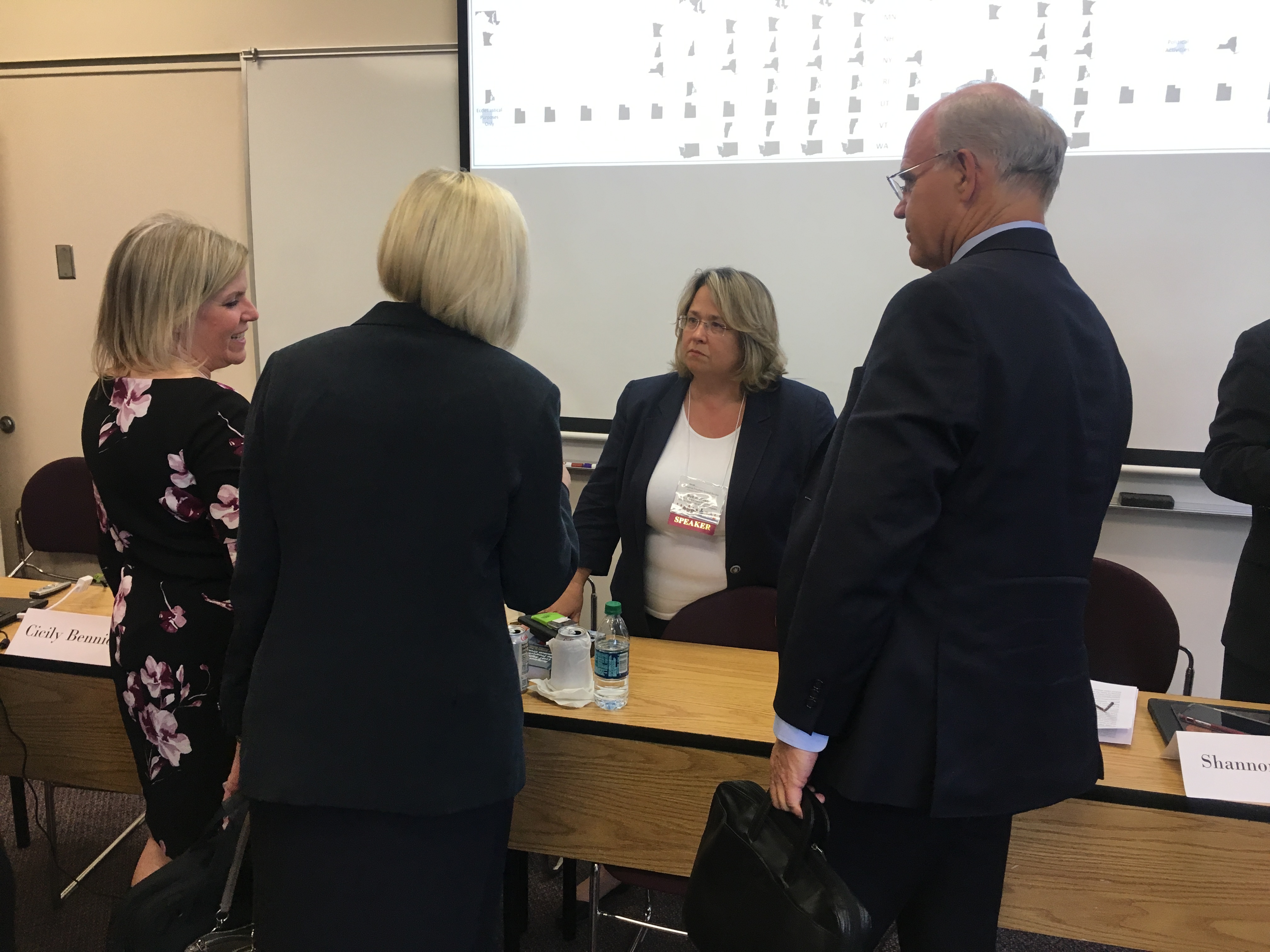
BYU students underscored tolerance as an important first step in loving members of the LGBT community during the Religious Freedom Annual Review on June 20.
The session was hosted by Tolerance Means Dialogues, an organization that travels to universities around the country and gives scholarships to students who engage in meaningful discussions about tolerance.
Tolerance Means Dialogues co-founder Robin Fretwell Wilson explained that the LGBT community and the religious community have plenty in common, including that both are afraid. She said Utah is the only state that has respected the rights of both communities through legislation.
“We are talking about communities that have common needs and really are making common claims upon society,” said Wilson, who was involved in the landmark Utah Compromise, which balances the rights of both communities.
Shannon Minter, the legal director of the National Center for Lesbian Rights, spoke about how both open dialogue and tolerance saved his life. Minter, a transgender male, said he grew up in a small conservative Texas community and the most difficult part about being gay was thinking it was so terrible it couldn’t even be discussed.
However, Minter felt support and love from his Christian high school government teacher, who made Minter check in with him every day and spoke openly with Minter about his struggles.
“Tolerance, it doesn’t require us to agree on everything,” Minter said. “We need to try to have a fuller understanding of what the other person’s viewpoint is; why they hold it, and how, based on that, we might be able to compromise and find some common ground.”
The organization selects two essay winners from each school it visits. Essay winners receive a $750 scholarship, have their essays published online and share their insights at Tolerance Means Dialogues events.
Minter said the BYU essay winners are the best yet, and Wilson said Utah students submitted more essays than any other university so far combined.
BYU undergraduate student Alexis Watson, one of the two BYU essay winners, spoke about the pioneers who first came to Utah seeking tolerance and religious freedom. She said despite this history, Utah is unfortunately known for being intolerant of LGBTQ individuals.
“There are many exceptions to this, many people here who defy that, but regardless, it to me seems really surprising that a people whose ancestors sacrificed so much for tolerance themselves and their religious beliefs would be intolerant towards people seeking the same thing,” Watson said.
Watson said tolerance is neither agreement or acceptance of ideas, but acceptance of people as they are.
BYU graduate student Cicily Bennion also won the Tolerance Means Dialogues essay contest. Bennion said she decided to become an ally to the LGBTQ community during her sophomore year of college when she saw two fathers playing with their young son at the park.
“They were a beautiful family. They just radiated love and joy,” Bennion said. “As I watched them dote on him, I realized their love never was and never could be a diminishing force in society.”
Bennion spoke about the difficulty of loving, quoting the poet Rilke who wrote, “To love is hard. When someone bids you to love, they are laying a great task upon you.”
“I wonder if Christ might have called loving the first and great commandment not just because it’s the most important commandment, but because loving is a great burden to bear,” Bennion said.
Bennion said tolerance is the first step toward love, and it’s simple and easy to do from a distance.
“But Christ didn’t ask us to tolerate each other,” Bennion said. “He asked us to love each other, which is a task that requires closeness and intimacy and vulnerability.”
The full video of the Tolerance Means Dialogues session can be found online.




